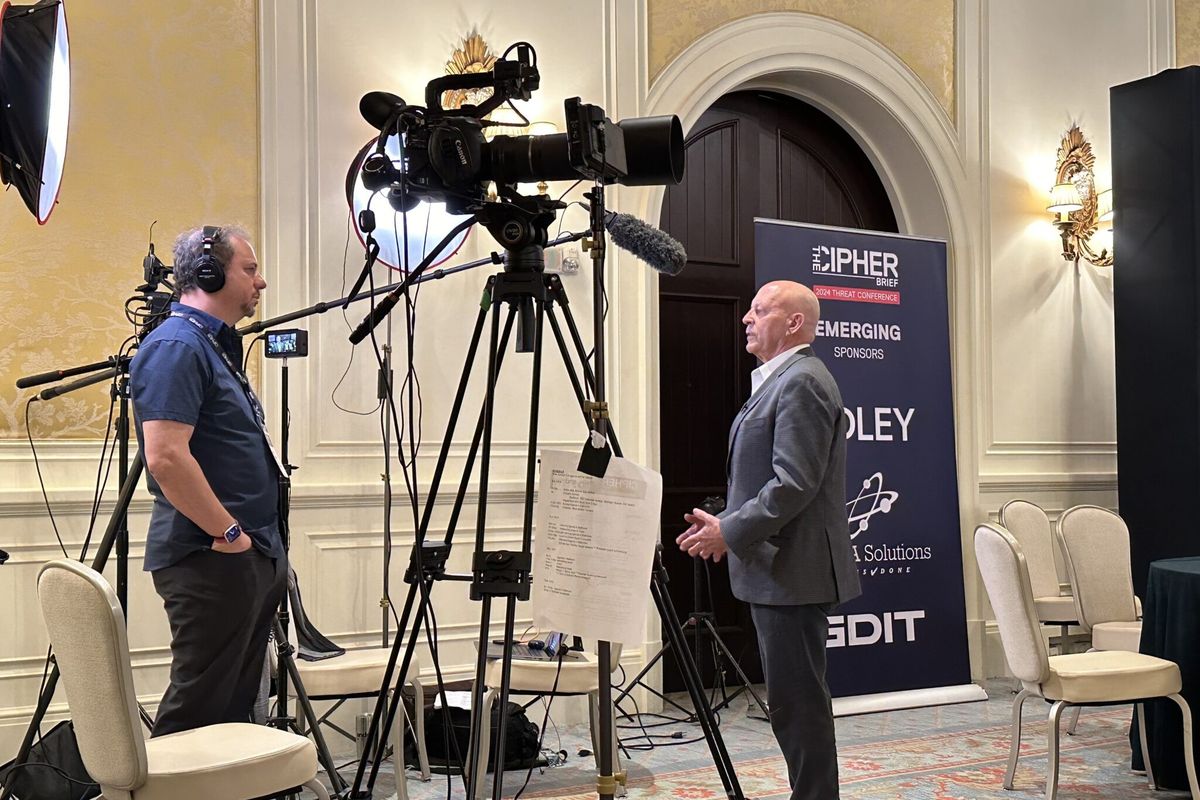Talk of espionage today has focused on Russian spies and the hacking of the 2016 U.S. presidential election. But recent reports of painful and unexplained hearing loss by U.S. diplomats in Cuba have raised questions about both the spy craft that may have caused it as well as the possible motivations behind it. Heather Nauert, the spokeswoman for the U.S. State Department, told reporters that the U.S. does not “have any definitive answers about the source” of the hearing loss. To better understand what kind of “sonic weapon” could have been used in Cuba, The Cipher Brief’s Kaitlin Lavinder spoke with H. Keith Melton, an intelligence historian and author of the book CIA Special Weapons and Equipment.
The Cipher Brief: You’ve said the motives of spying don’t necessarily change over time, but some of the devices do. In this recent case, in Cuba, the “acoustic attack” – what would a motive of such an attack be?
H. Keith Melton: There is a pattern (by former Soviet states and Cuba) of harassing diplomats. One of the reasons they do that is to destabilize them and make it difficult for them to conduct their lives.
Some diplomats are really intelligence officers. If it’s difficult for them to know when they are under surveillance, it’s hard for them to conduct their covert work. So, countries do things like puncture their tires randomly, or what we call “bumper lock” them – have the surveillance car literally a foot away from their bumpers – they harass them, detain them for routine traffic incidents, etc. Anything that destabilizes them makes it more difficult for them to conduct clandestine operations.
TCB: Have we seen, historically, any kind of acoustic devices used in the past? Can you think of a device that was used at an inaudible sound level that can infiltrate and harm the human body?
Melton: We have to go back to 1945. On July 4, 1945, the Soviet government presented the U.S. ambassador in Moscow a carved wooden seal of the United States that he ultimately hung over his desk. In it was what we call a passive cavity resonator; it was a sophisticated listening device that didn’t have any internal power. The way they powered it was to send a radar-like signal, a microwave signal, from across the street. The Soviets would flood the room with it and then get a reflection that they could demodulate and recover speech from.
There were claims at the time that people were ill when they were in the building; they later attributed that illness - in 1952, when they discovered this device – to the high energy that was being beamed into the building. Those types of claims were made during the 70s and certainly during the 80s, but they were hard to correlate with any specific source of a signal, because of course the hosts in Russia had absolutely no interest in cooperating and would never reveal something like that.
TCB: How likely do you think it is that this incident in Cuba was orchestrated by a third party, like the Russians?
Melton: I can’t imagine that the Russians would orchestrate something like this without the willing support of the Cuban intelligence services. They operate hand-in-glove.
I think the question is: is there such a weapon? The body can be very fragile, especially to sounds outside of the envelope that we use as our normal hearing. There are two types of sound: ultra-sonic, which is above our normal hearing, and infra-sonic, which is beneath it. Low frequency or infra-sonic signals have been known to make people lethargic. High frequency signals can have a totally different set of effects. But I have never read any medical report about something that would make people lose their hearing.
The U.S. Army has, for a long time, created sound weapons. It creates such a high-decibel sound that it is painful in your ears. Most recently we saw them deployed in the Middle East against pirates attacking commercial tankers – rather than shoot at them, they used these sound weapons to drive the boats off. It’s very audible and it’s very channeled: to get you to move out of the way. But you’re actually hearing it.
Something that is at a frequency above or below that – I’ve never seen any medical evidence of those causing sudden loss of hearing, as is being claimed in the news reports.
TCB: Given your engineering background, can you think of any device that would cause this loss of hearing without being audible to the human ear?
Melton: Anything is possible. The question is: is it probable? I haven’t seen any medical evidence that would give a reason to believe that something like that is possible. It would be on the cutting edge.
The Russians, in the 70s and 80s, used to put an invisible powder on the doormats of diplomats. They would literally walk across it, get it on their shoes, and they could be tracked for days in Moscow just with this invisible spy dust. The Russians put it on door knobs of cars and steering wheels. It turned out to be carcinogenic.
So, intelligence services are not opposed to using things like that, it’s just that sound has not been seen as being able to drive a direct result. I’ve heard of spaces being flooded with low-wave sound and people feel uncomfortable, or feel tense; they’re unsettled by the low-frequency. But that’s not going to cause a loss of hearing.
I thought it was interesting that one of the Canadian diplomats reported that he had a similar experience. Here is another friendly service or country that is reporting a similar event. In one way, it could be corroboration.
TCB: You mentioned earlier that the U.S. has used sound weapons of a different kind. What’s the spy history between the U.S. and Cuba? What is the likelihood that it was a Cuban spying operation?
Melton: Going back to Fidel Castro taking power – we absolutely opposed him and did everything we could to overthrow him; we were trying to assassinate him. There’s no love lost. The difficulty is that we have been very untrusting of Cubans, especially after the Cuban missile crisis. That was resolved, but as a totalitarian society, they exist by claiming that Big Brother in the U.S. is trying to overthrow them. They rally they’re people with that but in reality, we have no interest in invading Cuba.
But we know that the Cubans are very interested in what’s going on in the U.S. Two of the most recent cases in the last decade or so are that of the Myers couple, who were retired from the U.S. State Department and top Cuban spies. The most damaging Cuban spy in the U.S. ever was Ana Montes, who was arrested about ten days after 9/11. She was the senior DIA analyst on Cuba and was probably as high placed of a spy as they could ever hope for.
She was probably the perfect spy. If you said “who uses their intelligence services well?” I would submit that one of the most effective spy masters in the Cold War was Fidel Castro. He took such a personal involvement in his intelligence service; he was specifically recruiting people to give specific information and acting on it. He wasn’t going through the layers of bureaucracy that we use.
It’s also very difficult for the U.S. to operate in Cuba. There’s very little internet and it’s basically a closed society, though it’s opening up a little bit now. The core of Cuba is still a brutal dictatorship and a very strong intelligence service that’s hurtful to dissidents.
TCB: Any last thoughts on the future of spy craft?
If you ask what are the two cities that have more spies than any cities in the world, you’d have to say its Washington, DC and New York City.
Espionage is a growth industry; for many countries, it’s cheaper to steal U.S. secrets than to develop them.
As we become more globalized and interconnected with the internet and banking, we see that spies don’t look like the spies of yesterday. Spies are probably wearing business suits, they went to a good university, and they are here in true name, even though they were born in Russia.
We are threatened as never before. The FBI has said that the greatest threat strategically in regard to espionage is China; but the greatest tactical threat is Russia.













